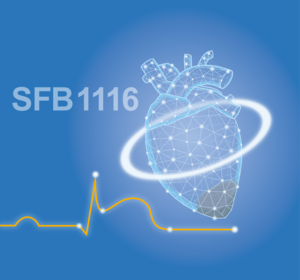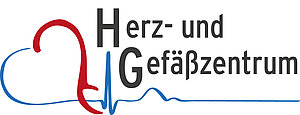Research
CARID is currently participating in all research networks and projects listed below.
Institutions
CARDDIAB
CARDiovascular Research in DIABetes
In CARDDIAB, the causes and consequences of the impaired interaction of the cardiovascular system and glucose metabolism in their early, advanced and late manifestations will be investigated in humans.
The project aims to translate preclinical and clinical findings into medical practice by intensifying interdisciplinary cooperation. It will lead to the use of new concepts for maintaining the health of the population and of tailored therapies for high-risk groups and patients.
Research Networks and projects
TRR259
Aortic Disease
TRR259 is a collaborative project of the three universities located along the river Rhine: Düsseldorf’s Heinrich Heine University, the Rheinische Friedrich Wilhelms University in Bonn, and the University of Cologne. The focus of TRR259 is to investigate the role of resident and non-resident molecular and cellular mechanisms in aortic diseases, particularly aortic valve stenosis, aortic aneurysm, and aortic dissection.
CRC 1116 (2015-2023)
Master switches in cardiac ischemia
The fundamental and prospective aim of the CRC 1116 "Master switches in cardiac ischemia" aims to identify new targets, i.e., molecules, pathways, and mechanisms critical for the acute and subacute response to myocardial ischemia, which we define as “master switches.” Notably, the CRC 1116 considers systemic cross-talk of ischemic cardiac injury and systemic inflammatory responses, metabolic comorbidities (obesity, insulin resistance, type 2 diabetes (T2DM)), and anaemia.
vivid
In vivo investigations of the early development of type 2 diabetes
With the aim of better understanding the molecular mechanisms involved in the early development of diabetes, the DFG Research Training Group "vivid" has been investigating the early development of type 2 diabetes since September 2020.
FUTURE-4-CSPMM
Clinician Scientists in Precision Metabolic Medicine
The Junior Clinician Scientist Program FUTURE-4-CSPMM (Clinician Scientists in Precision Metabolic Medicine) aims to break down the traditional boundaries between disciplines in the field of metabolic diseases and offers research-enthusiastic physicians the opportunity to conduct interdisciplinary research in the field of metabolic diseases alongside their residency training in an excellent and diverse research environment.
Multi-Omics Data Science
MODS: Integrated data analysis for prediction, prevention and therapy of metabolic systemic disorders
Multi-Omics Data Science (MODS) is a research initiative funded by the state of North Rhine-Westphalia as part of the Profilbildung 2020 programme. The initiative aims to research metabolic disorders and the resulting diabetological, hepatological, cardiovascular, and neurological clinical manifestations. Participating scientists are developing new methods from data science, bioinformatics, and AI in order to apply them to multimodal data analysis of various types of omics data.
KIPos
AI-guided postoperative care of cardiac surgery patients
Using an AI-based, interactive support system, KIPos aims to improve postoperative care for cardiac surgery patients. In order to do so, KIPos combines automated, AI-based postoperative monitoring of patients with interactive visualisations and predictive assistance to improve both care and workflow.
BMBF
Effects of extracorporeal circulation on the heart-brain axis: quantification of perfusion by 4D MRI
In our research project, a rabbit model of miniaturised extracorporeal circulation (ECC) is established in the MRI scanner. Using MRI-based blood flow measurements, a computer simulation model for ECCs will be validated in vivo for the first time. Furthermore, the influence of different ECC scenarios on arterial blood flow, brain perfusion, possible endothelial damage, and the mobilisation of atherosclerotic plaques will be investigated.
ARMAGNI
Surgical augmented reality loupe glasses (01/2021-07/2022)
The project aimed to develop magnifying glasses with an augmented reality function offering extensive and previously unavailable functions. The AR loupe glasses are intended to improve the quality of treatment for patients while increasing the comfort of the treating doctors.
Research at EU level
Horizon 2020: RESILIENCE
Remote Ischemic Conditioning in Lymphoma Patients Receiving Anthracyclines
Anthracyclines (AC) are the first line of treatment for many cancers. However, a significant proportion of treated patients develop cardiotoxicity and heart failure. RESILIENCE is testing the effects of an innovative intervention, remote ischemic preconditioning, as a strategy to reduce the incidence of AC-induced heart failure.
Horizon 2020: PRISAR2
Proactive Monitoring of Cancer as an Alternative to Surgery
The EU-funded project PRISAR2 builds on its successful predecessor PRISAR and designs new off-the-shelf technologies for tumour monitoring. The innovative imaging platform aims to keep the monitoring window as large as possible in order to minimize the risks posed by surgical interventions for patients and thus achieve an optimal treatment outcome.
Horizon 2020: NOVA-MRI
Novel Applications in 19F Magnetic Resonance Imaging (till 01/2024)
The NOVA-MRI project focuses on intelligent nanoparticles that have the potential to pave the way for new contrast agents by specifically releasing the agents at the target site, enabling personalized therapy.
International Research Training Groups
IRTG1902 (2013 - 2023)
Intra- and interorgan communication of the cardiovascular system
IRTG1902 was a DFG-funded international research training group that ran from 2013 to 2023.
The aim of the IRTG1902 was to promote excellent doctorates in the international network of the Heinrich Heine University Düsseldorf and the Cardiovascular Research Centre at the University of Virginia in Charlottesville, USA.









